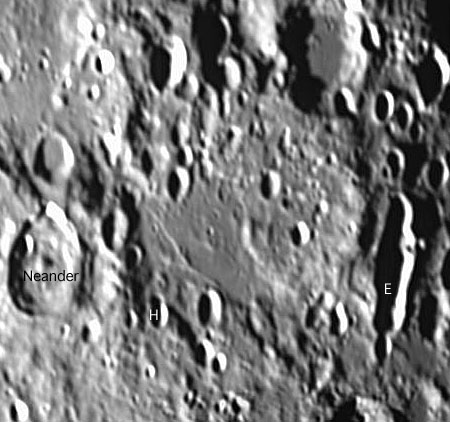November 6, 2004
Little Known Fault
Image Credit: Jim Phillips |
|
Little Known Fault The Straight Wall is deservedly the best known fault on the Moon. Other well-known faults include one near Cauchy and another in Lacus Mortis. But there are also smaller faults that have seldom been described. One is visible in this image cutting a roughly circular area of smooth plains between Neander and the elongated curiosity Rheita E. The fault is about 75 km long, with a bend near the middle. In this image, the Sun shines from the west, illuminating the fault scarp. Opposite illumination on an Lunar Orbiter IV image shows a shadow being cast, confirming that the eastern side of the fault is higher than the western side. Comparison of the shadow length of the fault with that of the nearby 1.88 km deep Neander H suggests that the fault scarp is about 350 m high; considerably higher than I expected. Why does this Neander fault exist? It is approximately radial to the Nectaris impact basin and thus probably is related in some way to the formation of that basin. Technical Details: Related Links: Yesterday's LPOD: Bright & Dark Tomorrow's LPOD: Humboldt |
|
Author & Editor: |
COMMENTS?
Register, Log in, and join in the comments.




